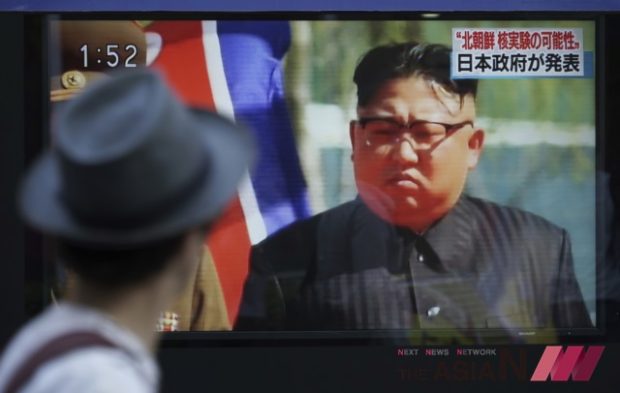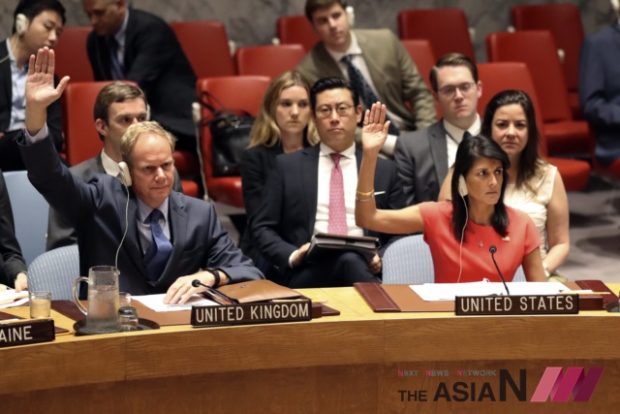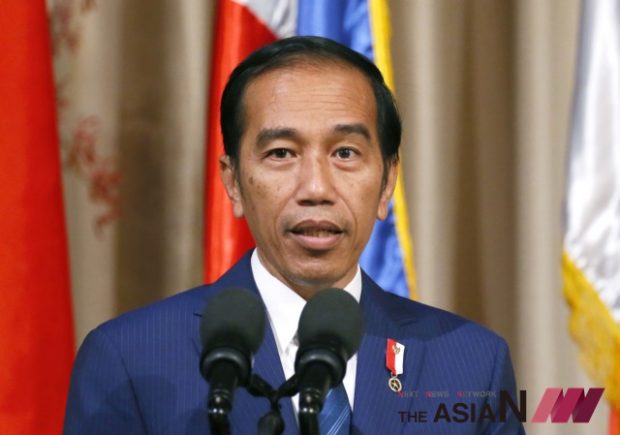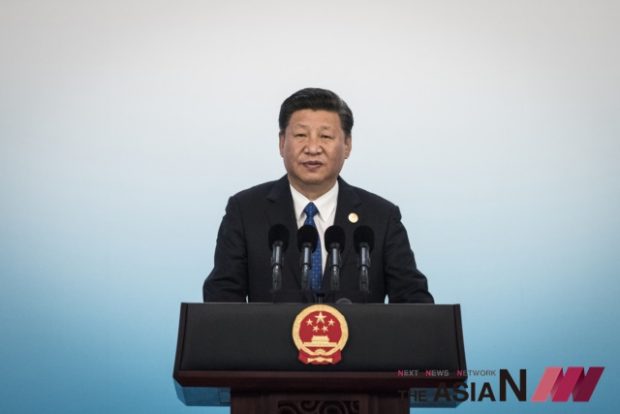
Unstable World Leaders

North Korea young leader Kim Jong-un inspecting the new weapon and showing it being loaded into an intercontinental ballistic missile accompanied the Korean Central News Agency (KCNA) report: “North Korea has succeeded in making a more developed nuke.” A photo of Kim Jong-un holding inspected a missile was released by State media on the 3rd of September.
More than 130 missile stations recorded shockwaves, which, after 20 minutes had reached as far as Argentina 12,000 miles from the test site. Based on the strength of the tremors, equivalent to a magnitude 6.3 earthquake, according to the US Geological Survey, nuclear weapons specialists put the yield of the bomb at about 100 kilotons; a number roughly 10 times more powerful than previous nuclear bombs tested by the North Koreans.
“Hydrogen bombs can be a lot more powerful than most atomic bombs. In conventional atomic bombs, the blast is produced by atoms being ripped in two. But the fission process is inefficient and the bombs tend to be big and heavy. On the other hand, the H-bomb and its explosive power which can be adjusted from a factor of 10 kilotons to 1000 kilotons, is a multi-functional thermonuclear nuke with massive destructive power detonated even at high altitudes for super-powerful EMP electromagnetic pulse attacks,” the KCNA said.
Since US President Trump’s warning that “fire and fury” would befall North Korea if it continued in its threats, Kim Jong-un unveiled a detailed plan to fire a salvo of missiles at the US Pacific of Guam, conducting its most provocative ballistic missile test to date; flying it over Japanese territory. Initial estimates suggest that the missile may have been a two-stage bomb perhaps ten times more powerful than any prior tests.
North Korea: Reason for Provocation
Kim Jong-un’s actions are those of a calculating risk-taker (more so than his father Kim Jong-il) intent on thumbing his nose at President Trump, while also bolstering his legitimacy in the eyes of his own people by realizing his goal of military modernization. This objective appears to be widely popular amongst many North Koreans, especially those living in Pyongyang.

The United Nations Security Council unanimously imposed new sanctions on North Korea in early July over its two intercontinental ballistic missile tests. The sanctions were said to have the potential to cut the Asian state’s $3 billion annual export revenue by a third, but Russia questions their effectiveness. President Trump also tweeted that the US “is considering, in addition to other options, stopping all trade with any country doing business with North Korea.”
The tweet suggested Trump hopes to squeeze China, the North’s patron for many decades and a vital US trading partner, on the economic front, to persuade Beijing to exert leverage on its neighbor.
North Korea’s latest underground blast defied UN resolutions that prohibit Pyongyang from pursuing nuclear and missile programs.
“Any threat to the United States or its territories, including Guam or our allies will be met with a massive military response—a response both effective and overwhelming. Kim Jong-un should take heed of the United Nations Security Council’s unified voice. All members unanimously agreed on the threat North Korea poses and remain unanimous in their commitment to the denuclearization of the Korean peninsula.”
“The imposed sanctions have not created any positive outcome. On the contrary, the situation leaves something to be desired,” Kremlin spokesman Dmitry Peskov said. Russia is ready to take part in talks to try to solve the North Korean issue but has yet to see any positive impact from sanctions against Pyongyang, a Kremlin spokesman said.
International Reaction
Russian President Vladimir Putin, discussed the bomb test with Chinese President Xi Jinping. Both leaders expressed their deep concerns about security on the Korean Peninsula. “Vladimir Putin said the international society should avoid being overwhelmed by emotion, it should act calmly and prudently. He also highlighted that a complex settlement of the nuclear and other problems of the Korean Peninsula could be achieved solely by political and diplomatic means.”
China condemned the test in a statement on the foreign ministry website: “China will work with the international community to comprehensively and completely implement the relevant resolutions of the U.N. Security Council, firmly push forward the denuclearization of the peninsula, and maintain the peace and stability of the peninsula.”
Meanwhile, Japan’s Foreign Minister Taro Kono said, “By way of the embassy in Beijing, we made it clear in the strongest words, that if this was a nuclear test, this is unforgivable, and a violation of the U.N. Security Council resolution.”
President Moon Jae-in of South Korea immediately requested the country’s foreign and defense ministries to “to seek all diplomatic ways to make North Korea abandon its nuclear and missile development through complete, verifiable, and irrevocable ways.”
“Our military must thoroughly prepare aggressive response,” Moon continued according to a statement issued at a National Security Council meeting. “Our government will not allow North Korea to make further advancements in nuclear and missile development.”
Persistent with his claims, he added, “We will establish a firm defense posture based on the South Korea-U.S. alliance to suppress North Korea’s additional provocations and consistently pursue building permanent peace on the Korean peninsula.”

Broadly understood, Indonesian President Joko Widodo’s central message at the previous ASEAN Summit in the Philippines (April 29), “ASEAN must send strong messages to North Korea to make it comply with all UN Security Council Resolutions” continues to encompass Indonesian sentiment on the current matter and alludes to present measures in global partnership to end any and all tests.
The Association of Southeast Asian Nations has since its founding in 1967 brought to light issues of economic development and peaceful multilateral relations amongst member states. Thus, the April summit became a critical point during which North Korea was an issue of top priority.
Widodo expressed Indonesia’s concern for the overall impact of North Korea developments, calling members of the regional block to unite to push North Korea in taking steps to reduce escalating tensions on the Korean Peninsula. Jokowi emphasized Indonesia’s commitment to promoting peace in the region stating, “Stability and peace must be returned to the Koerean Peninsula.”

The Diplomatic Way
Scrambling to find a peaceful resolution to matters, regional leaders of Asia voiced their willingness to ease tensions. President Jokowi said he would meet with Chinese President Xi Jinping soon and express Indonesia’s hopes that China, one of North Korea’s allies, would take part in reducing anxieties.
The US president continues very conspicuously to hint at the possibility of pre-emptive US military action against the North—a course of action that would have catastrophic consequences for the citizens of Japan, South Korea; especially the 10 million or so residents of Seoul directly in firing range of the North’s conventional and nuclear forces.
Ultimately, a US military response to the North Korean challenge would, therefore, represent a doomsday scenario for America’s two key regional allies as well as jeopardize the lives of the 28,500 US servicemen and personnel based in South Korea.
Unilateral US sanctions would be hard to enforce and would potentially provoke crippling retaliatory trade sanctions by countries such as China. In the past, China has balked at placing more economic pressure on the North saying that sanctions would take too long to have any meaningful effect on the North Korean leadership.
Given the grave risks and limited benefits associated with either sanctions or military action, diplomacy and dialogue remain the best means of defusing the current crisis.
All countries must stop in their provocations and propose diplomacy and dialogue. Instability has always only ended in negative results for both Korea and the US. Tensions that heightened with Trump’s presidency must be cooled down to begin an era of diplomatic dialogue and peaceful humanity.
President Xi Jinping told Trump that it was in the joint interests of both China and the United States to achieve the denuclearization of the Korean peninsula and protect peace and stability there (stated by the State television channel). “The relevant side must at present exercise restraint, and avoid words and actions that exacerbate tensions on the Korean peninsula,” Xi said. Resolving the nuclear issue ultimately needs to be done politically via talks, and China is willing to maintain communication with the United States on the basis of mutual respect to push for an appropriate resolution.
While the UN and individual nations should continue to forcefully condemn the North’s behavior, it actively and imaginatively explores the options for some form of dialogue with North Korea. One day, everyone will realize the need for denuclearization as the foundation of international stability; the fight for humanity must become the main appointment for all.



